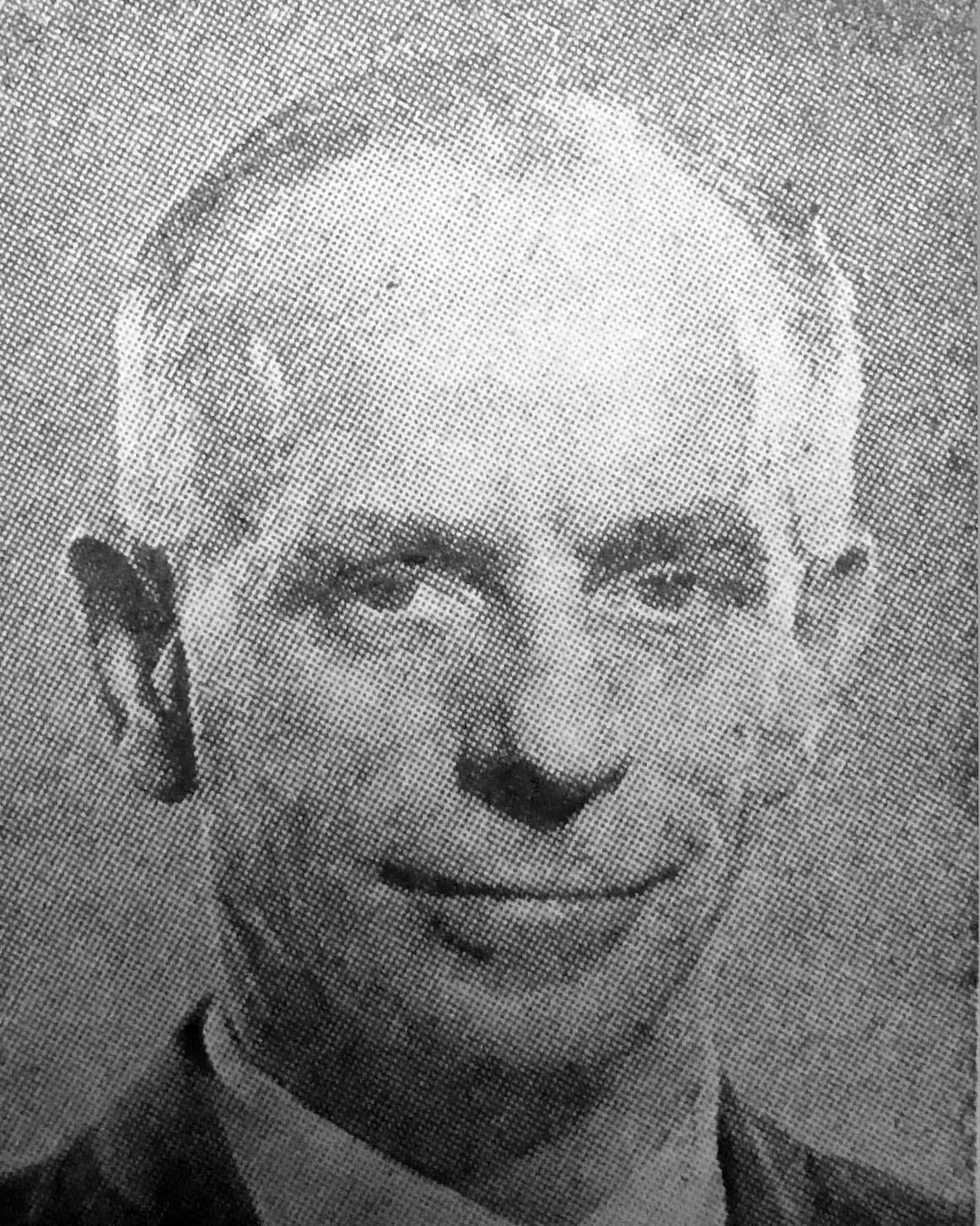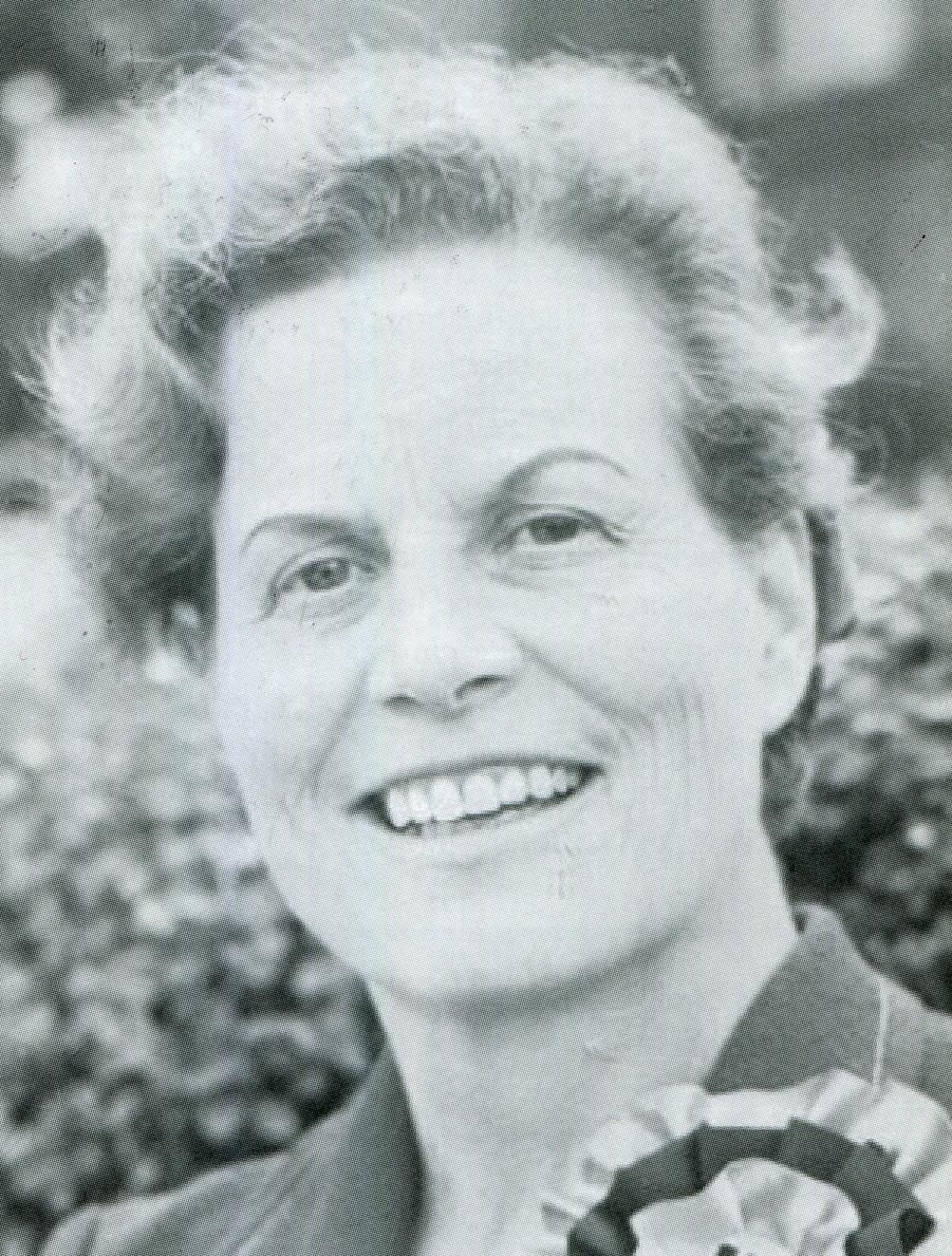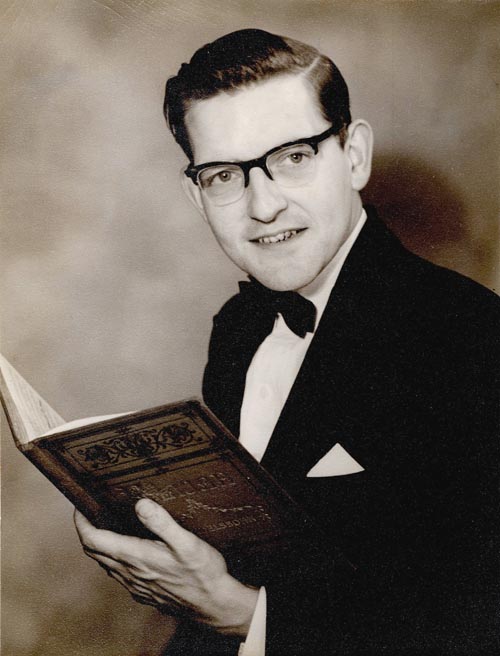Alf Tallant
 The death of Alf Tallant at the age of 95 has cut the last remaining link with the group of Leeds Labour pioneers who saw municipal politics as a key route to socialist influence. With its first Councillor only elected in 1903, Leeds Labour was ten years behind its neighbour Bradford, and it was often riven with internal disputes, but by the outbreak of war in 1914 it had more elected Councillors than the Liberals. Alf's grandfather had been the secretary of the South Ward Liberal Club in Hunslet but his father, Albert Tallant, allied himself to the Labour movement and regularly contested local elections from 1910 onwards, being a Leeds Councillor for eight years and an Alderman for eleven years. Alf went into the family shoemaking and shoe repairing business, based in the same Beeston shop for fifty years, until his retirement in 1973. Despite the decline in the demand for hand-made shoes, he took pride in having made an average of one pair of shoes a week, right up to his retirement.
The death of Alf Tallant at the age of 95 has cut the last remaining link with the group of Leeds Labour pioneers who saw municipal politics as a key route to socialist influence. With its first Councillor only elected in 1903, Leeds Labour was ten years behind its neighbour Bradford, and it was often riven with internal disputes, but by the outbreak of war in 1914 it had more elected Councillors than the Liberals. Alf's grandfather had been the secretary of the South Ward Liberal Club in Hunslet but his father, Albert Tallant, allied himself to the Labour movement and regularly contested local elections from 1910 onwards, being a Leeds Councillor for eight years and an Alderman for eleven years. Alf went into the family shoemaking and shoe repairing business, based in the same Beeston shop for fifty years, until his retirement in 1973. Despite the decline in the demand for hand-made shoes, he took pride in having made an average of one pair of shoes a week, right up to his retirement.
Despite his family background Alf Tallant came late into Leeds municipal politics, only being elected to the City Council in 1957. He was Deputy Lord Mayor in 1966 and became an Alderman in 1968, becoming one of only sixteen Labour members on a Council of 120!
With Labour back in office in Leeds in May 1972, Alf Tallant became Chairman of the Education Committee and launched a highly controversial school zoning policy, with catchment area boundaries being drawn around middle and high schools to achieve "a better mixing of the social classes". This often required tortuously shaped zones and the bussing of pupils. It was opposed by the Conservatives because it undermined parental choice and by the Liberals because it separated schools from their natural communities, and attracted large public protests. It was soon modified to allow parents to opt for schools other than those designated for their children and the scheme was later abandoned completely.
Tallant was a strong supporter of the arts and, under its civic ownership, became Chairman of the board of the Grand Theatre and Opera House, and of the City of Leeds College of Music. He became one of the first Honorary Aldermen of the City of Leeds in 1974. A man of strongly held views he remained deeply partisan throughout his time in politics. Not a natural orator, and by turns irascible and humorous, Tallant's quiet exterior hid deeply held socialist views and he remained strongly partisan throughout his time in politics.
Alf Tallant's wife, Rene, died in February 1989, and he leaves two daughters.
Alfred Tallant, born January 1908, died 25 August 2003.
See also The Guardian.
 As a key financial figure in the Liberal Party, Philip Watkins knew as much as any individual member of the detailed internal matters that bedevilled the party through the latter part of Jeremy Thorpe’s leadership, but he could never be prevailed upon to divulge personal or party matters that might reflect badly on those involved.
As a key financial figure in the Liberal Party, Philip Watkins knew as much as any individual member of the detailed internal matters that bedevilled the party through the latter part of Jeremy Thorpe’s leadership, but he could never be prevailed upon to divulge personal or party matters that might reflect badly on those involved. The survival of the Liberal Party through the dark years of the 1940s and 1950s was as much due to Donald Wade as to any other single individual.
The survival of the Liberal Party through the dark years of the 1940s and 1950s was as much due to Donald Wade as to any other single individual. Harry Woodhead, who has died at the age of 89, was just about the last of the traditional style of local reporter, with his trademark trilby hat always to the fore and his regular spot at the Town Hall Tavern on The Headrow in the centre of Leeds. Harry was a shrewd investigator of stories and purveyor of facts. His invariable politeness and quiet interrogation often induced local politicians to divulge more than they intended, with the result that Harry's reportage would often have additional material to that in other papers or in the "official" version. This was also the case with victims of crime, including some who had survived Peter Sutcliffe, the "Yorkshire Ripper".
Harry Woodhead, who has died at the age of 89, was just about the last of the traditional style of local reporter, with his trademark trilby hat always to the fore and his regular spot at the Town Hall Tavern on The Headrow in the centre of Leeds. Harry was a shrewd investigator of stories and purveyor of facts. His invariable politeness and quiet interrogation often induced local politicians to divulge more than they intended, with the result that Harry's reportage would often have additional material to that in other papers or in the "official" version. This was also the case with victims of crime, including some who had survived Peter Sutcliffe, the "Yorkshire Ripper". With her style and voice Margaret Wingfield looked and sounded like a "Hebe Conservative". This was far from the reality. She was one of those rare natural Liberals who accepted the burden of the Liberal millstone and undertook a wide range of responsibilities and tasks in pursuit of the Liberal cause. Margaret Wingfield had a family background of political involvement, including having an uncle, Charles McCurdy, who was Liberal MP for Northampton and Lloyd George's Coalition Liberal Chief Whip in 1921, but, such were the constraints on women politicians, that she was unable to be a candidate, even at local government level, until 1961 when she contested the London County Council election in Putney.
With her style and voice Margaret Wingfield looked and sounded like a "Hebe Conservative". This was far from the reality. She was one of those rare natural Liberals who accepted the burden of the Liberal millstone and undertook a wide range of responsibilities and tasks in pursuit of the Liberal cause. Margaret Wingfield had a family background of political involvement, including having an uncle, Charles McCurdy, who was Liberal MP for Northampton and Lloyd George's Coalition Liberal Chief Whip in 1921, but, such were the constraints on women politicians, that she was unable to be a candidate, even at local government level, until 1961 when she contested the London County Council election in Putney. Ray Whitelock, who has died at the age of 86, was one of those rare individuals who was a Liberal by personality and instinct. However difficult the issue, and however ravenous the reactionary response, Ray never flinched, and his disarming and engaging personality often won over the opposition.
Ray Whitelock, who has died at the age of 86, was one of those rare individuals who was a Liberal by personality and instinct. However difficult the issue, and however ravenous the reactionary response, Ray never flinched, and his disarming and engaging personality often won over the opposition. Peggy White, a Leeds Conservative stalwart and long-serving city councillor, has died aged 86 after suffering a stroke. Peggy was deputy lord Mayor of Leeds in 1993 and became lord mayor in 1995. She was made a CBE in 1978 for her work in social services.
Peggy White, a Leeds Conservative stalwart and long-serving city councillor, has died aged 86 after suffering a stroke. Peggy was deputy lord Mayor of Leeds in 1993 and became lord mayor in 1995. She was made a CBE in 1978 for her work in social services. Donald Webster epitomised the good 'Clubman'. He was always good company, with that key quality of being genuinely interested in his colleagues around the lunch table or in the clubroom. He was remarkably well read and had acquired a vast fund of anecdotes, an apposite example of which never needed any encouragement to be produced, but he took as much delight in listening as in telling. I gather that at times the stories could be rather more Rabelaisian than his rather demure appearance would suggest! He acquired friends easily and retained them loyally; he enjoyed organising his own presence in the midst of his 'regulars', even to the extent of arriving very early at the Leeds Luncheon Club each month in order to put cards on half a dozen or more prime places for us all - rather to the annoyance of some other less fortunate members, it has to be said!
Donald Webster epitomised the good 'Clubman'. He was always good company, with that key quality of being genuinely interested in his colleagues around the lunch table or in the clubroom. He was remarkably well read and had acquired a vast fund of anecdotes, an apposite example of which never needed any encouragement to be produced, but he took as much delight in listening as in telling. I gather that at times the stories could be rather more Rabelaisian than his rather demure appearance would suggest! He acquired friends easily and retained them loyally; he enjoyed organising his own presence in the midst of his 'regulars', even to the extent of arriving very early at the Leeds Luncheon Club each month in order to put cards on half a dozen or more prime places for us all - rather to the annoyance of some other less fortunate members, it has to be said!
